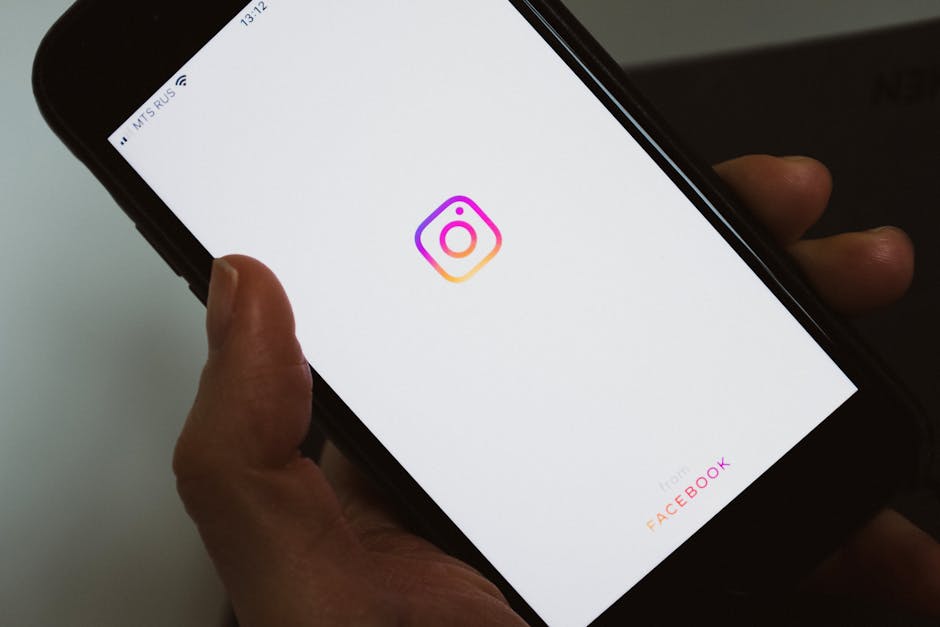Tapping Into The Potential Of Mobile App Development In Sheffield’s Healthcare Sector
Step into the future of healthcare in Sheffield as you unlock the immense potential of mobile app development.
Picture a world where patient care is enhanced, operational efficiency is optimised, and health outcomes are improved through the power of innovative technology. With mobile apps at your fingertips, you can revolutionise the way healthcare is delivered and experienced.
Imagine seamlessly scheduling appointments with just a few taps on your smartphone screen. No more long waits or frustrating phone calls – everything is at your convenience. And that’s not all. Mobile apps enable remote patient monitoring, allowing healthcare providers to monitor patients’ vital signs and ensure better health outcomes from afar.
But it doesn’t stop there. Personalised health tracking and management become a reality with mobile apps, empowering individuals to take control of their well-being like never before.
However, developing these transformative solutions comes with its own set of challenges. Join us as we delve into the complexities of mobile app development for healthcare and uncover strategies to overcome them.
Get ready to tap into the untapped potential of mobile app development in Sheffield’s healthcare sector – a journey that promises to reshape the future of patient care and bring about positive change for all.
Key Takeaways
- Looking for a Sheffield Mobile App Development company?
- Mobile apps have the potential to enhance patient care, improve operational efficiency, and improve health outcomes in Sheffield’s healthcare sector.
- Mobile apps enable seamless appointment scheduling and remote patient monitoring, reducing wait times and frustration for patients.
- Mobile apps can integrate with electronic health records and streamline processes for healthcare providers, improving communication, documentation, and task management.
- Mobile apps empower individuals to take control of their well-being, enable personalised health tracking and management, and enhance patient satisfaction and early detection of potential issues.
Enhancing Patient Care through Mobile Apps

Mobile apps are revolutionising patient care in Sheffield, bringing the convenience of personalised healthcare right to the fingertips of those who need it most. Through remote patient engagement, these apps allow individuals to actively participate in managing their own health, leading to improved outcomes and reduced hospital visits.
One key advantage of mobile apps is their ability to remotely engage with patients. By providing access to real-time health information and personalised recommendations, these apps empower individuals to take an active role in their own care. For example, patients can monitor vital signs, track medication adherence, and receive educational resources tailored to their specific conditions. This not only enhances patient satisfaction but also enables early detection of potential issues, allowing for timely interventions and preventing unnecessary hospitalisations.
However, with the increasing use of mobile healthcare applications comes the need for robust security measures. Mobile app security plays a critical role in protecting sensitive patient data from unauthorised access or breaches. It is essential for developers to implement strong encryption protocols and authentication mechanisms to ensure that personal health information remains secure.
As we move forward in improving operational efficiency with mobile app solutions, it is crucial to consider how these tools can complement existing healthcare systems. By seamlessly integrating with electronic health records and other clinical workflows, mobile apps have the potential to streamline processes and reduce administrative burdens for healthcare providers.
Mobile apps are transforming patient care by enabling remote engagement and enhancing accessibility. However, it’s important that we prioritise mobile app security when developing these solutions. By doing so, we can leverage the full potential of technology to improve both patient outcomes and operational efficiency within Sheffield’s healthcare sector without compromising data integrity or privacy.
Improving Operational Efficiency with Mobile App Solutions

By utilising mobile app solutions, healthcare providers in Sheffield can greatly enhance their operational efficiency and streamline processes like never before. The digital transformation of healthcare has opened up new possibilities for improving the way healthcare organisations operate. Mobile apps offer a range of features and functionalities that can help providers optimise their workflows and deliver better care to patients. Let’s explore how mobile app solutions can revolutionise operational efficiency in the healthcare sector.
| Improve Communication | Streamline Documentation | Enhance Task Management |
|---|---|---|
| Instantly communicate with colleagues, patients, and other stakeholders through secure messaging platforms. | Digitise patient records and medical documentation for easy access and efficient record-keeping. | Assign tasks to staff members, track progress, and ensure timely completion of important tasks. |
| Collaborate on patient cases remotely by sharing information and seeking input from multiple specialists. | Reduce paperwork by automating administrative processes such as billing, insurance claims, and scheduling appointments. | Generate reports and analytics to identify bottlenecks in operations and make data-driven decisions for improvement. |
| Seek second opinions or consult with experts without the need for physical meetings or delays in patient care. | Ensure compliance with regulatory requirements by securely storing sensitive patient information according to industry standards. |
Mobile app solutions enable healthcare organisations to streamline their processes, reducing manual effort, eliminating redundancies, and enabling faster decision-making. By embracing these technological advancements, providers can focus more on delivering high-quality care rather than being burdened by administrative tasks.
Transitioning into the subsequent section about ‘appointment scheduling made easy,’ leveraging mobile app solutions not only improves operational efficiency but also simplifies appointment scheduling for both patients and healthcare professionals alike.
[END OF CURRENT SUBTOPIC]
Appointment Scheduling Made Easy

Transitioning into the ease of appointment scheduling, how can healthcare providers in Sheffield utilise mobile app solutions to simplify the process for both patients and professionals?
Streamlining processes and increasing accessibility are key benefits that mobile apps bring to appointment scheduling in the healthcare sector. With a mobile app solution, patients can easily view available time slots and book appointments directly from their smartphones, eliminating the need for phone calls or waiting on hold. This not only saves time for patients but also reduces administrative burden on healthcare providers.
Mobile apps also allow healthcare professionals to efficiently manage their schedules and reduce no-show rates. Automated reminders can be sent to patients through push notifications or SMS, ensuring they remember their appointments and reducing the likelihood of missed visits. Additionally, these apps can integrate with electronic health records systems, enabling seamless information exchange between different departments and ensuring all relevant patient data is readily accessible.
Furthermore, mobile app solutions can offer features like real-time updates on wait times at clinics or hospitals, allowing patients to plan their visit accordingly. By providing this information upfront, it improves patient experience while minimising frustration caused by long wait times.
Adopting mobile app solutions for appointment scheduling in Sheffield’s healthcare sector has immense potential for streamlining processes and increasing accessibility. Patients benefit from a simple booking system that eliminates phone calls and reduces wait times. Healthcare professionals enjoy improved schedule management capabilities and reduced no-show rates.
The next section will explore how remote patient monitoring can further enhance health outcomes without requiring constant physical visits.
Remote Patient Monitoring for Better Health Outcomes

Improve your health outcomes with remote patient monitoring, a game-changing technology that allows healthcare providers in Sheffield to monitor your vital signs and symptoms from the comfort of your own home.
With the advancements in telemedicine, remote monitoring technologies have become an essential tool for healthcare professionals to provide personalised care and enhance patient outcomes.
Remote patient monitoring involves the use of devices such as wearable sensors, smartwatches, and mobile apps that collect real-time data on various health parameters. These devices enable continuous monitoring of important indicators like heart rate, blood pressure, blood glucose levels, and even sleep patterns.
Through secure online platforms, this data can be securely shared with healthcare providers who can then analyse it remotely. By regularly monitoring these vital signs and symptoms without requiring patients to visit clinics or hospitals frequently, potential health issues can be identified early on and necessary interventions can be made promptly.
The benefits of remote patient monitoring are vast. It not only helps in managing chronic conditions more effectively but also reduces hospital readmissions and emergency room visits. Moreover, it empowers patients by giving them greater control over their own health management. They can actively participate in their treatment plans by tracking their progress using mobile apps specifically designed for this purpose.
Incorporating remote patient monitoring into the healthcare system in Sheffield is a significant step towards improving overall health outcomes for its residents. The integration of telemedicine advancements allows for efficient communication between patients and healthcare providers while ensuring accurate diagnosis and timely intervention.
Transitioning into the subsequent section about personalised health tracking and management opens up further possibilities for enhancing individualised care through mobile app development tailored to meet specific needs.
Personalised Health Tracking and Management

Take control of your health with personalised tracking and management, using cutting-edge technology to tailor your healthcare experience. With the rise of smart wearable devices, such as fitness trackers and smartwatches, you can now monitor various aspects of your health in real-time. These devices track your heart rate, sleep patterns, physical activity levels, and even stress levels, giving you valuable insights into your overall well-being.
- Real-time monitoring: Stay on top of your health by receiving instant updates on important metrics like heart rate and sleep quality through smart wearable devices. These devices provide continuous monitoring throughout the day, allowing you to make informed decisions about your lifestyle choices.
- Personalised recommendations: Smart wearable devices not only collect data but also analyse it to generate personalised recommendations for improving your health. By considering factors such as age, gender, and activity level, these devices can suggest targeted exercise routines or dietary changes that fit your unique needs.
- Data security: When it comes to personal health information, data security is paramount. Mobile apps developed for personalised health tracking should prioritise robust encryption methods to ensure that sensitive data remains secure at all times. Implementing measures like user authentication and secure cloud storage can protect against unauthorised access.
- Seamless integration: To maximise the effectiveness of personalised health tracking and management solutions, mobile apps need to seamlessly integrate with other healthcare systems like electronic medical records (EMRs) or telehealth platforms. This integration enables healthcare providers to have a comprehensive view of their patients’ health status and enables them to deliver more accurate diagnoses and tailored treatment plans.
Transitioning into the next section about overcoming challenges in mobile app development for healthcare…
The development of mobile apps for personalised health tracking and management brings numerous benefits; however, it’s not without its challenges.
Overcoming Challenges in Mobile App Development for Healthcare

To effectively develop mobile apps for healthcare, you must navigate various challenges and ensure seamless integration with existing healthcare systems. One of the key challenges is data security. Healthcare data is highly sensitive and must be protected from unauthorised access or breaches. App developers need to implement robust security measures such as encryption, secure authentication, and regular security audits to safeguard patient information.
Another challenge is regulatory compliance. Healthcare apps need to comply with strict regulations such as the Health Insurance Portability and Accountability Act (HIPAA) in the United States. Developers must ensure that their apps meet these requirements by implementing features like user consent management, data access controls, and audit trails.
In order to grab your attention, let’s take a look at a table highlighting some common challenges in mobile app development for healthcare:
| Challenge | Description | Solution |
|---|---|---|
| Data Security | Protecting sensitive healthcare data from unauthorised access or breaches | Implement encryption, secure authentication, and regular security audits |
| Regulatory Compliance | Ensuring compliance with strict regulations such as HIPAA | Implement user consent management, data access controls, and audit trails |
| Interoperability | Integrating seamlessly with existing healthcare systems | Use standardised protocols like HL7 FHIR for interoperability |
| User Experience | Creating an intuitive and user-friendly interface | Conduct extensive user testing and gather feedback for continuous improvement |
| Scalability | Designing apps that can handle increasing amounts of users and data | Use cloud-based infrastructure that allows scaling resources based on demand |
By addressing these challenges effectively during the development process, you can create mobile apps that not only provide valuable healthcare services but also adhere to stringent standards of data security and regulatory compliance.
Contact us to discuss our services now!
